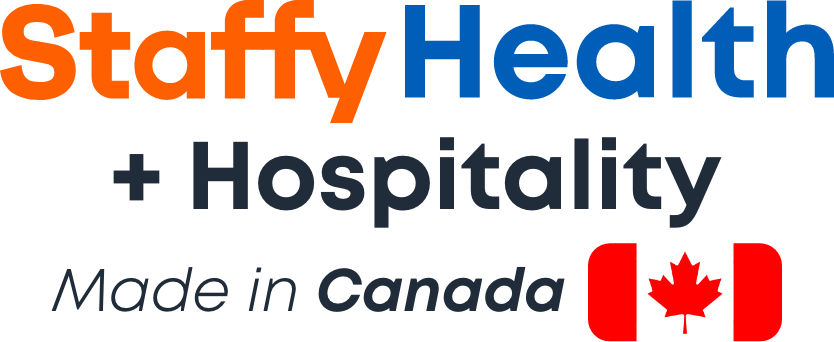
Harmony in Healthcare: Mastering Conflict Resolution
Working in the healthcare industry can be challenging, and conflicts can arise quickly in these high-stress environments. As healthcare professionals, it is crucial to develop effective strategies to deescalate conflicts swiftly and maintain a safe and harmonious work space. This is especially true when you are placed in a new healthcare facility. So what can you do?
1. Engage In Active Listening
One of the most powerful tools for deescalating conflicts is active listening. When a conflict arises, take the time to fully understand the concerns and emotions of all parties involved. Maintain eye contact, use open body language, and offer verbal cues to demonstrate your attentiveness. Show empathy by acknowledging their feelings and ensuring they feel heard. Active listening allows individuals to express themselves fully, often diffusing tension and opening the door for productive dialogue and conflict resolution.
Active listening involves more than just hearing the words being said. It requires focusing on the speaker's message, nonverbal cues, and underlying emotions. By actively listening, healthcare professionals can gain a deeper understanding of the conflict's root causes and find common ground for resolution. Additionally, it helps build trust and rapport, creating a conducive environment for effective communication.
2. Show Respect and Empathy
In the midst of a conflict, it is vital to treat all individuals involved with respect and empathy. Recognize that emotions may be running high, and a compassionate and understanding approach can go a long way in deescalating the situation. Avoid making assumptions or passing judgment, and instead focus on fostering a supportive and non-judgmental atmosphere. Demonstrating empathy by putting yourself in their shoes can help defuse tension and build bridges of understanding.
Respecting the dignity and worth of each person involved in the conflict is essential. It is important to remember that conflicts often arise from differing perspectives, values, or priorities. By acknowledging these differences and showing empathy, healthcare professionals can create a safe space for open dialogue and resolution. Respecting the emotions and opinions of others, even if they differ from your own, is key to building trust and finding mutually beneficial solutions.
3. Effective Communication
Clear and concise communication is essential in any conflict resolution process. Strive to communicate assertively while maintaining a calm and composed demeanor. Clearly express your thoughts, needs, and concerns, using "I" statements to avoid sounding accusatory. Encourage others involved in the conflict to do the same. Actively listen to each other's viewpoints, and seek common ground to find a mutually agreeable solution. Remember, effective communication is a two-way street that requires active participation from all parties involved.
Communication breakdowns often contribute to conflicts in healthcare settings. Misunderstandings, misinterpretations, and poor articulation can escalate conflicts further. By focusing on clear and assertive communication, healthcare professionals can reduce ambiguity and create an environment where concerns can be openly addressed.
In conflict situations, it is important to choose words carefully, ensuring they convey respect and understanding. Using "I" statements instead of "you" statements helps to express personal perspectives without assigning blame. Active listening should be combined with effective communication techniques, such as summarizing the other person's viewpoint to ensure understanding and avoiding defensive or confrontational language. By communicating effectively, healthcare professionals can foster an atmosphere of collaboration and problem-solving.
4. Collaborative Problem-Solving
Conflict resolution in a healthcare setting often involves finding a solution that benefits all parties. Engage in collaborative problem-solving techniques that encourage teamwork and foster a sense of shared responsibility. Create a safe space where everyone involved can contribute their ideas and opinions. Explore multiple options and encourage compromise when appropriate. The goal is to find a resolution that satisfies the needs and concerns of all parties involved, promoting a harmonious work environment and ultimately improving patient care.
Collaborative problem-solving allows healthcare professionals to leverage their collective expertise and experience to find innovative and practical solutions. By involving all parties in the process, conflicts can be reframed as opportunities for growth and improvement. Encouraging open dialogue and brainstorming sessions can help uncover underlying issues and generate creative ideas for resolution.
To facilitate collaborative problem-solving, healthcare professionals should establish ground rules that promote respect, active participation, and constructive feedback. These rules should encourage active engagement from all parties and discourage personal attacks or defensive behavior. By fostering a sense of shared responsibility, healthcare professionals can create a collaborative environment where conflicts are seen as opportunities for mutual growth.
5. Training and Conflict Resolution Resources
To effectively manage conflict in a healthcare setting, it is beneficial to have ongoing training and access to conflict resolution resources. Organizational support in the form of workshops, seminars, and training programs can equip healthcare professionals with the necessary skills to handle conflicts confidently. These resources can teach effective communication techniques, conflict management strategies, and provide guidance on deescalation tactics specific to the healthcare environment. Investing in such training and resources not only empowers individuals to deescalate conflicts but also cultivates a culture of conflict resolution within the organization.
Continued education and training in conflict resolution empower healthcare professionals to navigate conflicts effectively. Workshops and seminars can provide practical tools and techniques for conflict management, such as negotiation strategies and mediation skills. By investing in these resources, healthcare organizations demonstrate a commitment to fostering a supportive and collaborative work environment. Additionally, such initiatives can enhance overall team dynamics, reduce workplace stress, and improve patient outcomes.
Conflict is inevitable in any workplace, including healthcare settings. However, by implementing these five best practices—active listening, respect and empathy, effective communication, collaborative problem-solving, and access to training and resources—healthcare professionals can deescalate conflicts effectively and create a more harmonious work environment. Active listening and empathy lay the foundation for understanding and empathy, while effective communication enables clear dialogue. Collaborative problem-solving facilitates shared responsibility and generates mutually beneficial solutions. Finally, providing training and resources empowers healthcare professionals to handle conflicts confidently.
By prioritizing these strategies, healthcare professionals can enhance patient care, promote teamwork, and cultivate a supportive environment for all staff members.
Related Blogs
Let's improve patient care together.
Choose the day, time, skill, and rate you want and get matched with qualified talent immediately.




